Solar power to pump water
Magare is a small Nepalese village situated in the Syangia district which lies to the West of Khatmandu. The village is home to 150 Nepalese people all from the Magar ethnic group, an indigenous population who have occupied this land for generations.
The majority of the 22 households living here are engaged in subsistence agriculture however year after year they cannot produce enough to meet their yearly food demand let alone think about turning a profit from their yield. This has resulted in a significant number of men out-migrating from the community to nearby cities for seasonal work or to the Middle East for long term work. It is now primarily women, adolescents and the elderly who are left in the community, managing household and agricultural responsibilities, and remittance from family members overseas has become the main source of income for a lot of the households in the community.
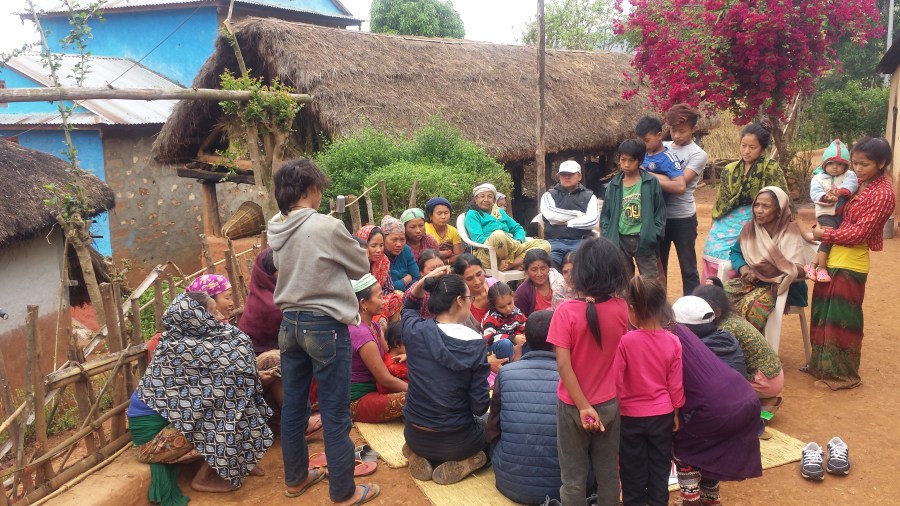
Women are expected to carry out all the household chores. They are normally the first to rise and last to go to bed as they must look after the entire family. Because the male population in the village is depleting as more men are out-migrating, women are having to take on a double work load and cultivate the land as well as complete all the work at home.
The only available water source is located down the valley which means women and children are having to spend 2 or more hours every day collecting water in order to perform these tasks. This means that women cannot invest their time in other endeavours and children are forfeiting their education, they are locked in a daily cycle of surviving.
Having to collect heavy loads of water every day has serious implications for on ones health and because women and children are loaded with the burden of having to collect water they are the ones who are suffering the most. Collecting water is back breaking work, it damages the core muscles and can have a lasting negative impact on the strength of the spine. It is also high energy demanding work and for women and children who are not getting a good, balanced diet, over exertion leads to malnutrition.
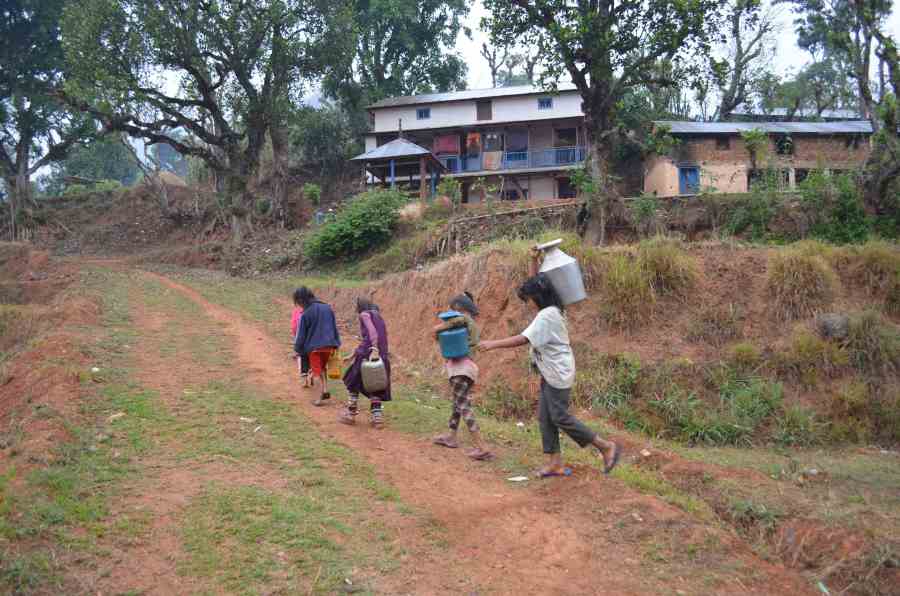
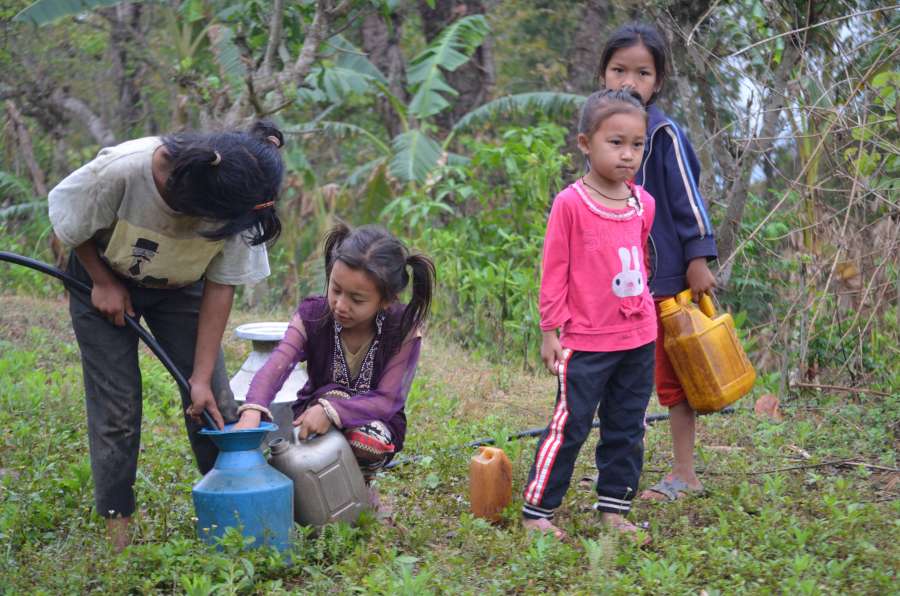
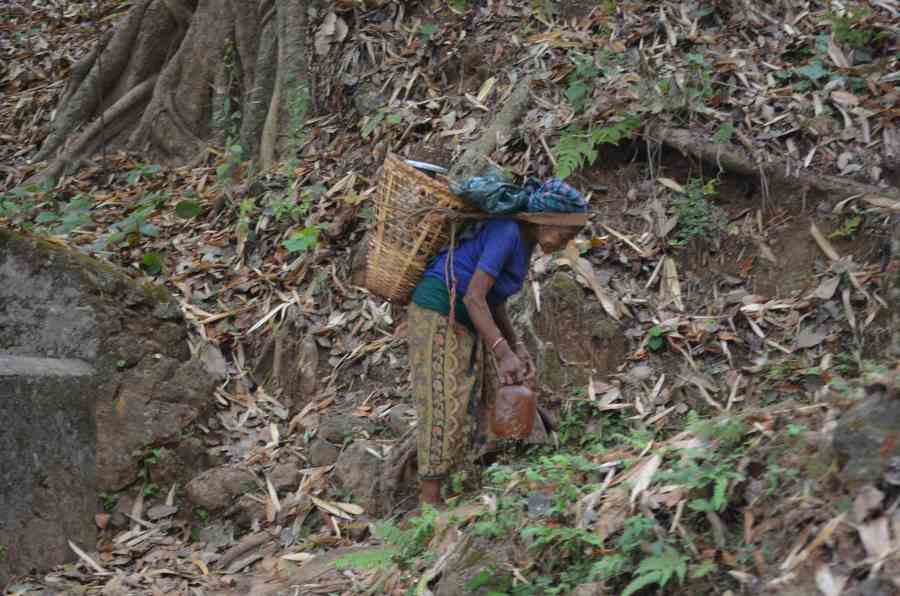
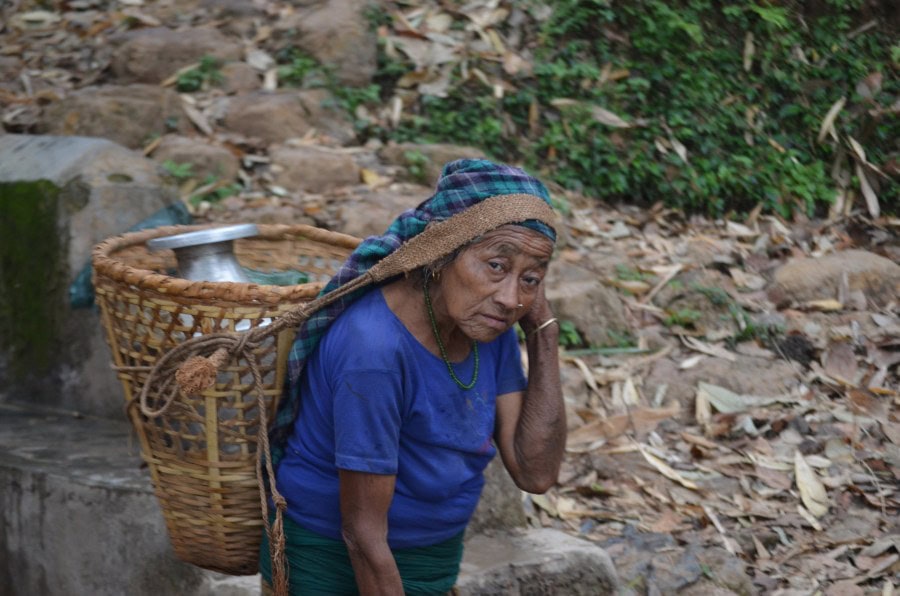
By having a water source in the village which produces clean and reliable water it can drastically change the lives of the people, especially the women, living there. Women and children no longer need to travel to collect water, leading to improved health and increased time to focus on education, business or other endeavours.
As part of the Solar MUS II (Multiple Water Usage System) project, Renewable World held discussions with the people of Magare to work alongside them to install a solar water pumping system in the village to provide all 22 households with access to water for domestic use and small scale irrigation. The total cost of the project was NPR 2,652,605 (£19,881), of which 77% was successfully mobilised by the community through matched funding. The community was actively engaged in the project implementation and the construction of civil infrastructure.

The Renewable World team have worked closely with the Magare community to build their agricultural knowledge and skills, linking them with agricultural collection centres and preparing water source protection plans. The community have a great sense of ownership of the technology and are learning how to be financial responsible for the water system and how to manage and repair the technology so they can be in complete control when we leave.
Find out more about our solar water pumping technology and our work in Nepal.